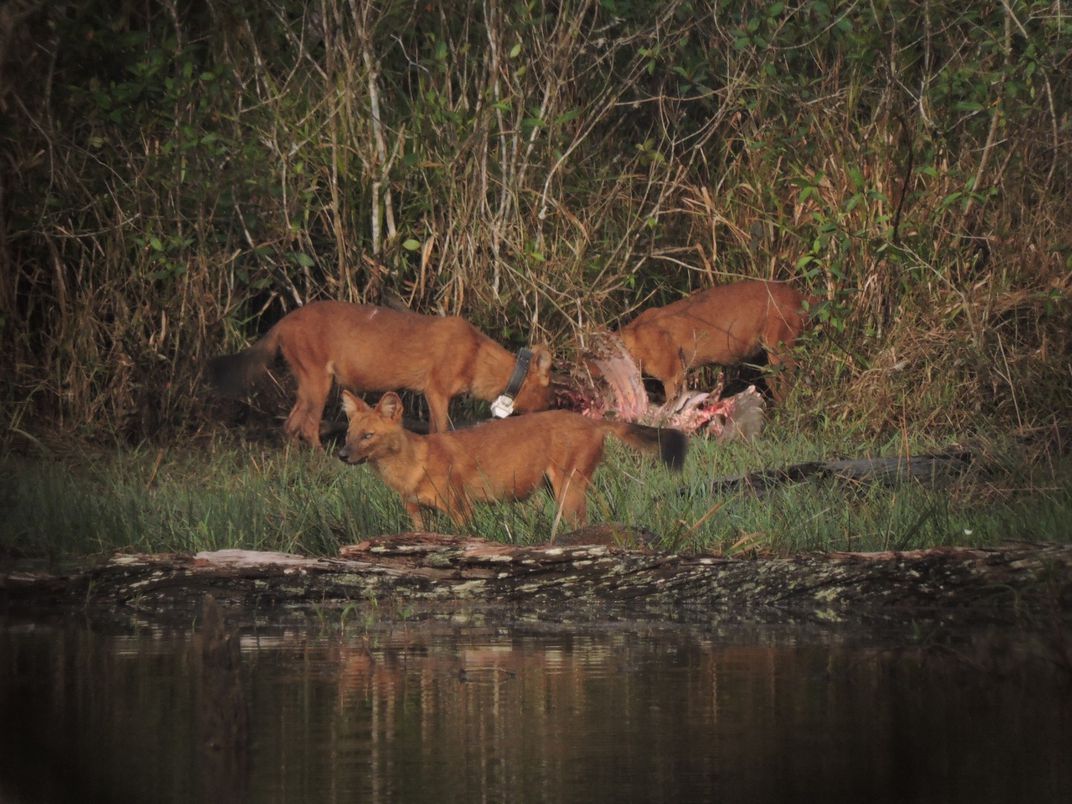Dholes are an endangered species found in eastern and southern Asia. They are known as the “whistle hunter” because they hunt in close-knit packs and communicate in dense forests by whistling. Dholes usually eat hoofed animals but also eat berries, lizards, and insects.
Dholes are social canids that live in close-knit packs with a rigid structure of dominance hierarchies. The species once occurred throughout South and East Asia. However, due to habitat loss, human persecution, depletion of their prey base, and disease, the estimated area of occupancy for the dhole has declined significantly (> 50%), and most remaining populations are fragmented.
In Thailand, dholes are found in protected areas that support large ungulate populations. Due to their elusive nature, the number of dholes in Thailand is unknown. However, opportunistic encounters by park rangers have created the perception that this species is overly abundant and responsible for the disappearance of prey species and even tigers.
Smithsonian scientists are collaborating with Thai researchers to better understand this elusive species by tracking dhole packs with GPS collars. During the past seven years, we have fit GPS collars on dholes living in four protected areas. Our data revealed that a dhole pack can occupy forest habitat as large as 400 sqkm. Because of their need for expansive space, the species likely occurs in a low density in this country. Such information is important for providing insights into the conservation and management of this unique species.

Head, Center for Species Survival
Smithsonian Conservation Biology Institute National Zoological Park
Ecologist, MoL Terrestrial Program Lead
Smithsonian National Zoo & Conservation Biology Institute (NZCBI), Conservation Ecology Center